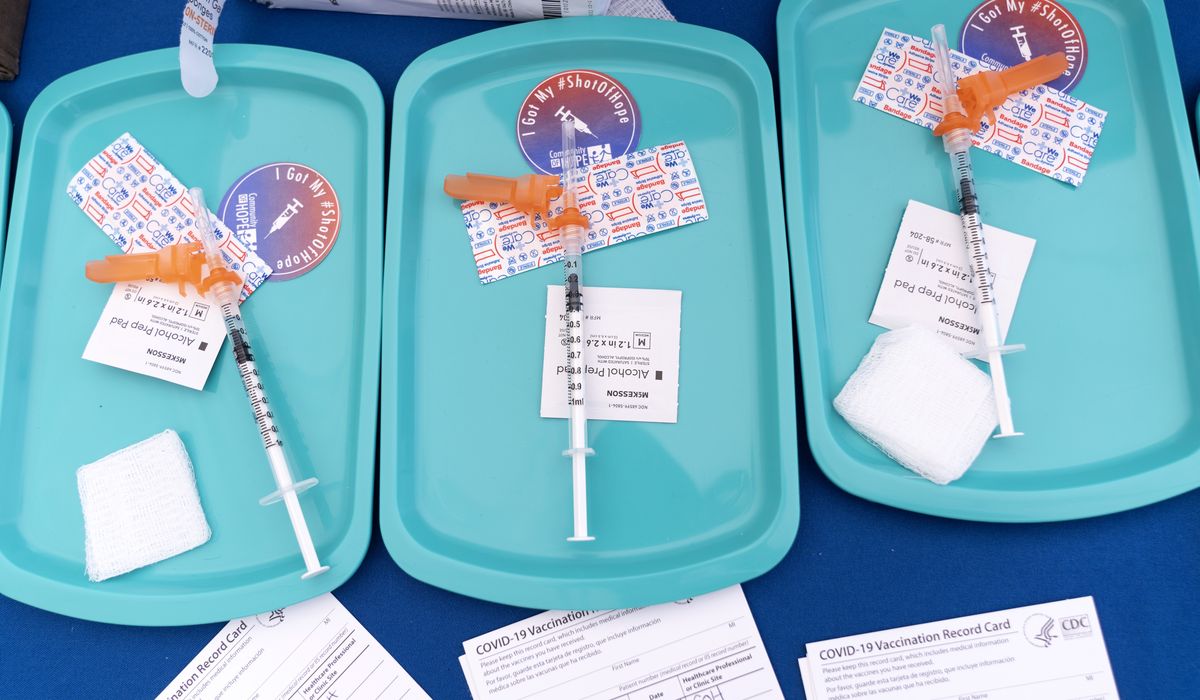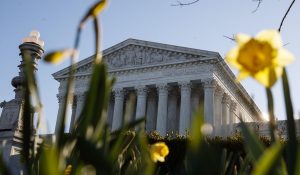Louisiana Attorney General Jeff Landry said Thursday the next round of legal battles leading to the Supreme Court could be over COVID-19 vaccine mandates and said he is already warning colleges in his state that requiring students and staff to get the shot is illegal.
“All I am waiting for is a couple of students who want to stand up and want to object to the process and hold firm,” he told The Washington Times. “I believe they are going to prevail.”
Students at Louisiana State University have not yet filed a lawsuit, but the Republican attorney general recently fired off a letter to the school, warning officials that it runs afoul of federal law and the state constitution to require vaccines in order to participate in educational programs.
Because the COVID-19 vaccinations have not yet been fully cleared by the Food and Drug Administration and are only distributed under the so-called “Emergency Use Authorization,” critics have been challenging vaccine mandates as unconstitutional.
Mr. Landry also said Louisiana voters amended the state constitution years ago to protect people’s ability to reject vaccines for both religious or non-religious reasons.
“These students have a layer upon layer of both state constitutional rights and federal rights,” he said.
Mr. Landry noted a “large number” of younger people have had reactions to the COVID-19 shots.
“I think that’s dangerous. I think we should be looking at that,” he said.
LSU officials said Thursday they don’t see a clear legal way to require vaccines on campus. Members of the faculty had been pushing for a mandate.
“We do not believe we will be able to mandate vaccines on campus,” said Ernie Ballard, media relations director for LSU. “However, we are also looking at other options and alternatives to mandating the vaccine, and in the meantime continue to encourage those in the LSU community to get vaccinated.”
State tracking data put Louisiana 20th among the U.S. states for COVID-19 test positivity rates, with a 3.5% infection rate among those tested.
Tulane University announced last month it would require proof of vaccine by July to register for classes. But the school is giving students an opportunity to decline vaccination under state law for religious, personal or medical reasons.
The American College Health Association announced in April it recommended universities to require the vaccine and a number of campuses are announcing mandates.
America University in Washington, D.C., is requiring the vaccine, as are 458 other colleges across the nation, according to the Chronicle of Higher Education. Across town, however, the Catholic University of America is encouraging students to get vaccinated but not requiring it.
“In keeping with the American College Health Association’s recommendation, Tulane has joined more than 400 universities across the country in requiring students to receive the COVID-19 vaccination. Students may decline the vaccination for medical, religious or philosophical reasons,” said Michael Strecker, executive director of public relations at Tulane.
Lawrence Gostin, a law professor at Georgetown University, said private colleges have a legal right to mandate COVID-19 vaccines. It is a little trickier for public schools, as the legality of requirements could depend on state laws.
“In some states, public universities have discretion to mandate vaccines. Rutgers University, part of the New Jersey public system, was the first to announce a mandate,” he said. “But in some states, university presidents need state permission to mandate vaccines. That is the case, for example, in New York.”
“Overall, most colleges and universities have the right to require vaccination of students, faculty and staff,” Mr. Gostin added.
Ilya Shapiro, vice president of the Cato Institute, said the legal analysis for COVID-19 vaccine mandates isn’t any different from other vaccines that have been legally required in schools for years.
“Judges, deferential on public health as it is, will look at how invasive the public health measure is, how effective, and what the side effects are. Given the evidence we’ve seen regarding the COVID vaccine, I can’t imagine that the legal analysis will be any different than for the longtime-accepted childhood vaccines,” he said.



















